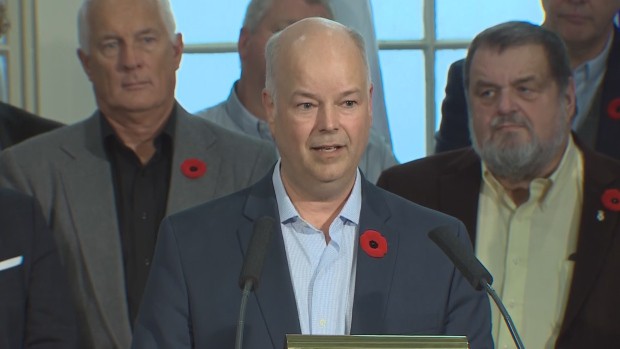
CBC
This column original appeared in the Halifax Examiner November 6, 2017.
Many years ago, probably after an election campaign he’d just lost that he believed he should have won, I interviewed then-Nova Scotia Liberal politician Gerald Regan. He was in a philosophical mood. “Victory and defeat,” he told me, paraphrasing a Rudyard Kipling poem, “are equal imposters. Sometimes you lose when you should win; sometimes you win when you should lose.”
Regan had lost but he went on to win, and later lose the Nova Scotia premiership, and then to win and lose a seat in the federal parliament.
Still later, in the late 1990s, he became notorious as one of the first powerful political figures to face criminal charges of sexual assault in a case that involved close to three dozen women. There are many who will tell you that was a case Regan should also have lost, but won. But I digress…
I couldn’t help thinking about Regan’s cribbed quote last week when Jamie Baillie announced he was stepping down as the leader of the Nova Scotia Progressive Conservative party after two elections and seven years.
While I don’t believe Baillie should have won last spring’s provincial election, he probably should not have lost either.
If he hadn’t — if Stephen McNeil’s Liberals hadn’t barely sputtered across the majority finish line four long hours after vote counting began — Jamie Baillie probably wouldn’t have considered leaving a job he’d only recently begun to grow into.
On May 30, 2017, in the last, sweet few moments of election night, when it still appeared Stephen McNeil’s Liberals might pay a price for their arrogance and be rightfully reduced to a minority government — with Baillie’s second place Tories as the legitimate government in waiting, with a real opportunity to prove they could be trusted — Baillie had seemed energized. Standing at the podium in Springhill with his wife and daughters at his side, he talked about the “major changes” he expected in a new Liberal budget that would need to respond to his campaign’s calls for more investments in health care and mental health supports, and…
It was not to be. A few votes here, a few votes there and a few minutes later — thanks to our tired first-past-the-post electoral system — Jamie Baillie’s political dreams turned to dust in his hands.
He had hit a political glass ceiling. Given the Liberal majority, it would have been four more years before Baillie got his next shot at becoming premier. Who knows what might have changed in the electoral calculus by then?
He had just turned 51, too old to wait around but still young enough to want to take on another career challenge or two. With political leadership experience to go with a pre-politics private sector business background, Baillie, a chartered accountant by trade, is almost certain not to be unemployed for long.
Baillie says his decision was a “family” one. He has a wife and two young daughters. Politics is an all-consuming, time-sucking, life-missing world, and we sometimes forget the personal cost paid by politicians and — more to the point — politicians’ families for public service.
All of which helps make Baillie’s decision all the more understandable.
While he did not accomplish all he set out to do, Jamie Baillie did not really lose either. He brought the province’s Tories back from their Rodney-MacDonald electoral near-death experience in 2009 to almost victory in 2017. After a brief flirtation with Stephen Harper conservatism, he helped steer the party back to its more traditional Nova Scotian progressive conservative roots and, in the process, made it a force again. And he also adopted a few causes as his own — mental health support for one — that needed a public champion. And did it some charm and grace.
In the end, Jamie Baillie showed it is possible to win even when you lose.





 STEPHEN KIMBER, a Professor of Journalism at the University of King's College in Halifax and co-founder of its MFA in Creative Nonfiction Program, is an award-winning writer, editor and broadcaster. He is the author of two novels and eight non-fiction books. Buy his books
STEPHEN KIMBER, a Professor of Journalism at the University of King's College in Halifax and co-founder of its MFA in Creative Nonfiction Program, is an award-winning writer, editor and broadcaster. He is the author of two novels and eight non-fiction books. Buy his books